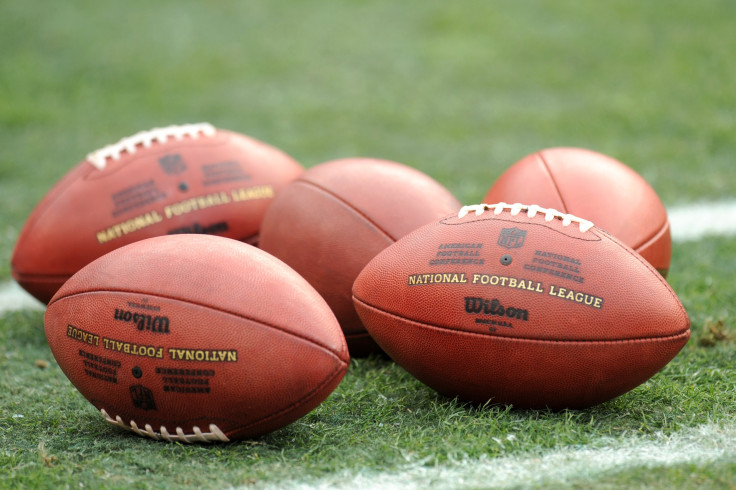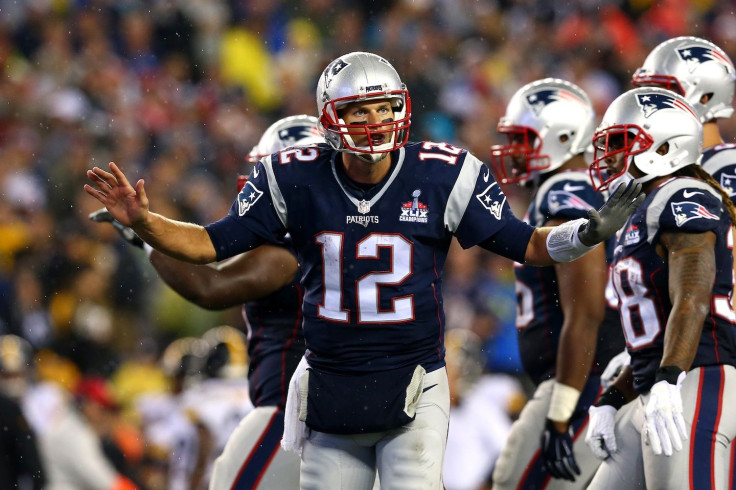DirecTV Blackout Angers NFL Fans, As Blame Game Underscores Bitter Retransmission Fee Debate

The recent blackout of an NBC affiliate that prevented thousands of DirecTV subscribers from enjoying NFL games calls to mind so many football idioms: Obviously, someone dropped the ball, but was it a fumble or did the opposing team run interference?
This being the pay-TV industry, that naturally depends on whom you ask. The three-week blackout, which came to an end Sunday, affected an estimated 200,000 DirecTV subscribers in the Salt Lake City area when KSL-TV, an NBC affiliate there, went dark. The disruption began Aug. 21 after contract negotiations broke down and the two sides could not reach an agreement on “retransmission consent” fees -- the fees pay-TV providers pay to broadcasters for the right to carry their signals.
The dispute initially received little attention, but things got serious last Thursday when DirecTV subscribers found themselves unable to watch the NFL opener between the New England Patriots and the Pittsburgh Steelers on NBC Channel 5 in Utah.
Patriots fans in Utah w/ @DIRECTV ... How are you watching the game since it's on @KSL5TV but KSL is not on DirecTV? pic.twitter.com/FvLOWchJEx
— Joe Myers (@joeartdotcom) September 10, 2015Panic escalated as NBC prepared to air its first episode of “Sunday Night Football” and thousands of fans were faced with the possibility of missing the game between the New York Giants and the Dallas Cowboys. All was seemingly right with the world when, late Saturday night, KSL-TV announced it reached an eleventh-hour agreement with DirecTV and service was being restored. But some viewers continued to report outages into Sunday, forcing the question of culpability into the spotlight.
On Monday, TVFreedom.org, a Washington-based advocacy organization for broadcasters, released a harsh statement blaming the signal disruption on “technical glitches” and saying it speaks to the need for cable and satellite TV providers to improve their infrastructure.
“Yesterday’s service outages on DirecTV, especially for football fans trying to tune in to highly anticipated Week 1 NFL games, are yet another example of the thousands of ‘blackouts’ on satellite TV and cable systems that occur yearly due to poor service quality and bad weather,” said Robert Kenny, a spokesman for TVFreedom.org.
Not so fast, says DirecTV. Reached for comment Monday, Darris Gringeri, a spokesman for the satellite TV provider, said the blackout was the result of KSL having revoked DirecTV’s access. “It was not a technical glitch,” he said. “Bonneville International, owner of KSL, demanded that we remove the signal as contract negotiations were taking place.”
In a follow-up email, Kenny accused DirecTV of downplaying the company’s technical problems. He cited news reports indicating outages over the weekend that were not confined to those related to the contract dispute. “Unfortunately, DirecTV would rather play loose with the facts instead of addressing whatever issues may have caused the blackouts for their customers,” he said.
The website TVPredictions.com had previously reported about local outages, saying they occurred in the Southeast on Thursday and then again on Sunday, scattered throughout the country. The outages appeared to last less than an hour, said Phillip Swann, the website’s publisher.
Kenny said the website DownDetector.com showed interruptions outside the affected service area in Utah, while complaints on Twitter revealed viewers were having trouble signing up for DirecTV’s NFL Sunday Ticket, an issue DirecTV acknowledged.

To a large extent, the finger-pointing and blame games between broadcasters and providers are par for the course for TV carriage disputes. When channels go dark, the two sides typically engage in vicious public barbs, with each side blaming the other for disruptions in service.
But the stakes are much higher these days for broadcast affiliates, whose skyrocketing retransmission fees have gotten the attention of federal regulators. Earlier this month, the Federal Communications Commission voted to review the rules governing retransmission consent negotiations, and pay-TV providers have been urging the agency to revamp the current regulations, which date back to the 1992 Cable Act.
Providers say the fees have gotten out of control over the last decade as bargaining power has shifted in favor of network affiliates -- a particular issue during football season when stations know viewers will be anticipating big games. In a filing to the FCC this summer, an advocacy group for the cable and satellite industry said retrans fees mushroomed 8,600 percent between 2005 and 2012, and consumers are feeling those costs in their cable bills.
In postings on the KSL-TV website last week, Tanya Vea, the station’s general manager, insisted KSL was asking for fair compensation.
“I guarantee you KSL is not asking for anything excessive in this negotiation,” Vea wrote. “I already pay a lot for DirecTV and, like many of you have expressed, am also not interested in having my bill increase.”
With service restored as of Sunday, all is right in Utah again, but the threat of disputes loom throughout the country. Football fans, be prepared to carry the ball. And maybe the rabbit ears.
This story has been updated to reflect input from TVPredictions.com. Christopher Zara covers media and culture. News tips? Email me . Follow me on Twitter @christopherzara .
© Copyright IBTimes 2024. All rights reserved.






















